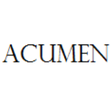The New Yearbook for Phenomenology
and
Phenomenological Philosophy
In April of 1995 founding co-editor of The New Yearbook for Phenomenology and Phenomenological Philosophy Burt Hopkins contacted Max Niemeyer Verlag, the publisher of Edmund Husserl’s Jahrbuch für Philosophie und phänomenologische Forschung, to inquire about the rights to its name, with the idea of resuming its publication. Husserl’s Jahrbuch began publication in 1913 and, in the words of Karl Schuhmann, “had toward the end of 1933 de facto ceased to exist.”[1] On April 4th, he received a letter from Marlene Kirton in Max Niemeyer’s Foreign Rights Department, informing him that the publisher is not “able to grant you permission for using the title because the yearbook is still available as a reprint. So, the copyright for this title is not yet free.” In a follow-up letter, Hopkins proposed purchasing the copyright for the title. On May 11th, Kirton wrote, “I have discussed your problem with Mr. Harsch-Niemeyer (1932-2011, grandson of Maximilian David Niemeyer, founder of Max Niemeyer Verlag) himself but with the same result as before. . . Would it not be a solution to name your review “Neues Jahrbuch für Philosophie und phänomenologische Forschung? We could agree with this choice.”
Steven Crowell, the other founding co-editor of The New Yearbook, and Hopkins were mindful that the most likely reason the original Jahrbuch separated “philosophy” from “phenomenological research” is that, as Schuhmann reports, “It seems that the main reason for mentioning philosophy first was the conviction of Husserl’s co-editors that phenomenology, though it is the foundation of other disciplines (especially of psychology), is not an independent discipline with respect to philosophy, but rather a method of philosophizing” (6). Hopkins and Crowell therefore modified its title to The New Yearbook for Phenomenology and Phenomenological Philosophy, in accord with the relation between “phenomenology” and “philosophy” in the title of Husserl’s Ideas I (Ideen zu einer reinen Phänomenologie und phänomenologischen Philosophie).
The New Yearbook for Phenomenology and Phenomenological Philosophy begun publication in 2001. The “Editors’ Preface for the first volume, quoted in full here, articulates its raison d’être.
The New Yearbook for Phenomenology and Phenomenological Philosophy is born of the editors’ conviction that the present need for an organ devoted to phenomenology and phenomenological philosophy is acute. As its title announces, our aim is to renew the original spirit and intention of Edmund Husserl’s Jahrbuch für Philosophie und phänomenologische Forschung, which he expressed in 1913 in the preface to the inaugural volume: “This journal is intended . . . to unite those in shared work who hope for a fundamental reform of philosophy by means of the pure and rigorous execution of phenomenological method.” In line with this, we can only affirm Husserl’s insistence, also stated in the original preface, that “it is not a school system that unifies the editors” but “the shared conviction that only through a return to the original sources of intuition, and to the eidetic insights to be drawn from it, can the concepts and the problems of the great traditions of philosophy be evaluated, that only on this path can concepts be intuitively clarified and the problems be framed anew on an intuitive basis and then solved in principle.” The editors are well aware that a history of nearly one century separates our endeavor from its origins, a history that has witnessed repeated challenges to Husserl’s basic concepts in the name of “phenomenology” itself. Thus we do not take it for granted that the concepts of intuition, eidetic insight, and methodological purity provide “paths to a securely founded and continually progressing science.” Nevertheless, we believe that sedimented within this history, the “things themselves” from which such concepts originally issued remain a vital source of phenomenological, and indeed philosophical, legitimacy. Moreover, the editors are of one mind that if by ‘science’ is meant the cognitive ideal of measuring philosophical claims by the standard of evidence—a standard that pertains to the very grasp of a claim’s truth and so provides a norm for all dialogue and argumentation—then the aim of establishing phenomenology as a science, and indeed as “rigorous science,” cannot be abandoned without abandoning the birthright of philosophy itself. Husserl understood the repeated challenges to the basic concepts of his phenomenology by his erstwhile students and followers to be so many attempts “to annihilate the fundamental meaning of [his] life’s work.” For us however, these challenges have a different significance. In the need of those carrying on the tradition inaugurated by Husserl’s groundbreaking work to take issue with that work, we find the clearest testament to its enduring value: one does not bother to challenge what no longer speaks to one. The goal of this journal is to provide a forum that respects this enduring value by fostering the serious, critical dialogue required to ensure its vitality.
The New Yearbook for Phenomenology and Phenomenological Philosophy (first published by Noesis Press: 2001-2010, then by Acumen: 2011-2012), now in its 21st year (2022), has striven to fulfil its mission by publishing essays, texts and documents, discussion and review articles. All back issues, together with individual contributions, are available in electronic format from Routledge, its current publisher. In 2009, founding co-editor, Steven Crowell, stepped down to become editor of Husserl Studies, and John Drummond became co-editor of The New Yearbook for Phenomenology and Phenomenological Philosophy. In 2022 John Drummond stepped down and Associate Editor, Daniele De Santis, assumed the role of co-editor of The New Yearbook for Phenomenology and Phenomenological Philosophy.
[1] Karl Schuhmann, Philosophy of Phenomenological Research, Vol. 50, Supplement (Autumn, 1990), pp. 1-22, here p. 23.
[See W. McKenna, Burt C. Hopkins, The North American Phenomenological Journals: "Husserl Studies" and "The New Yearbook for Phenomenology and Phenomenological Philosophy," in: M. B. Ferri (Ed.), The Reception of Husserlian Phenomenology in North America (Springer, 2019), pp. 337-340]
Steven Crowell, the other founding co-editor of The New Yearbook, and Hopkins were mindful that the most likely reason the original Jahrbuch separated “philosophy” from “phenomenological research” is that, as Schuhmann reports, “It seems that the main reason for mentioning philosophy first was the conviction of Husserl’s co-editors that phenomenology, though it is the foundation of other disciplines (especially of psychology), is not an independent discipline with respect to philosophy, but rather a method of philosophizing” (6). Hopkins and Crowell therefore modified its title to The New Yearbook for Phenomenology and Phenomenological Philosophy, in accord with the relation between “phenomenology” and “philosophy” in the title of Husserl’s Ideas I (Ideen zu einer reinen Phänomenologie und phänomenologischen Philosophie).
The New Yearbook for Phenomenology and Phenomenological Philosophy begun publication in 2001. The “Editors’ Preface for the first volume, quoted in full here, articulates its raison d’être.
The New Yearbook for Phenomenology and Phenomenological Philosophy is born of the editors’ conviction that the present need for an organ devoted to phenomenology and phenomenological philosophy is acute. As its title announces, our aim is to renew the original spirit and intention of Edmund Husserl’s Jahrbuch für Philosophie und phänomenologische Forschung, which he expressed in 1913 in the preface to the inaugural volume: “This journal is intended . . . to unite those in shared work who hope for a fundamental reform of philosophy by means of the pure and rigorous execution of phenomenological method.” In line with this, we can only affirm Husserl’s insistence, also stated in the original preface, that “it is not a school system that unifies the editors” but “the shared conviction that only through a return to the original sources of intuition, and to the eidetic insights to be drawn from it, can the concepts and the problems of the great traditions of philosophy be evaluated, that only on this path can concepts be intuitively clarified and the problems be framed anew on an intuitive basis and then solved in principle.” The editors are well aware that a history of nearly one century separates our endeavor from its origins, a history that has witnessed repeated challenges to Husserl’s basic concepts in the name of “phenomenology” itself. Thus we do not take it for granted that the concepts of intuition, eidetic insight, and methodological purity provide “paths to a securely founded and continually progressing science.” Nevertheless, we believe that sedimented within this history, the “things themselves” from which such concepts originally issued remain a vital source of phenomenological, and indeed philosophical, legitimacy. Moreover, the editors are of one mind that if by ‘science’ is meant the cognitive ideal of measuring philosophical claims by the standard of evidence—a standard that pertains to the very grasp of a claim’s truth and so provides a norm for all dialogue and argumentation—then the aim of establishing phenomenology as a science, and indeed as “rigorous science,” cannot be abandoned without abandoning the birthright of philosophy itself. Husserl understood the repeated challenges to the basic concepts of his phenomenology by his erstwhile students and followers to be so many attempts “to annihilate the fundamental meaning of [his] life’s work.” For us however, these challenges have a different significance. In the need of those carrying on the tradition inaugurated by Husserl’s groundbreaking work to take issue with that work, we find the clearest testament to its enduring value: one does not bother to challenge what no longer speaks to one. The goal of this journal is to provide a forum that respects this enduring value by fostering the serious, critical dialogue required to ensure its vitality.
The New Yearbook for Phenomenology and Phenomenological Philosophy (first published by Noesis Press: 2001-2010, then by Acumen: 2011-2012), now in its 21st year (2022), has striven to fulfil its mission by publishing essays, texts and documents, discussion and review articles. All back issues, together with individual contributions, are available in electronic format from Routledge, its current publisher. In 2009, founding co-editor, Steven Crowell, stepped down to become editor of Husserl Studies, and John Drummond became co-editor of The New Yearbook for Phenomenology and Phenomenological Philosophy. In 2022 John Drummond stepped down and Associate Editor, Daniele De Santis, assumed the role of co-editor of The New Yearbook for Phenomenology and Phenomenological Philosophy.
[1] Karl Schuhmann, Philosophy of Phenomenological Research, Vol. 50, Supplement (Autumn, 1990), pp. 1-22, here p. 23.
[See W. McKenna, Burt C. Hopkins, The North American Phenomenological Journals: "Husserl Studies" and "The New Yearbook for Phenomenology and Phenomenological Philosophy," in: M. B. Ferri (Ed.), The Reception of Husserlian Phenomenology in North America (Springer, 2019), pp. 337-340]



